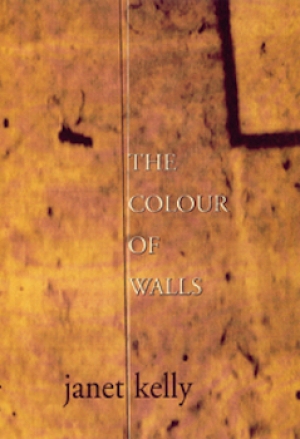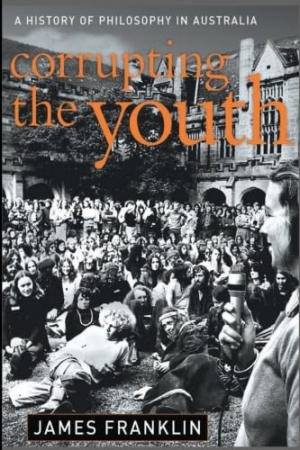Archive
Christopher Bantick reviews 'The Colour of Walls' by Janet Kelly
In her searing novel, The Colour of Walls, Janet Kelly writes about child abuse and incest with clarity and understanding. The subject matter alone is disturbing, and the sense of cyclical hopelessness is both enduring and arresting. Still, Kelly brings us to a faintly optimistic resolution. This somewhat redeems an otherwise bleakly realistic story.
... (read more)Spinning Around is reminiscent of Allison Pearson’s I Don’t Know How She Does It (2002), the story of Kate Reddy, a full-time fund manager who also juggles a husband, a nanny, and two young children. The voice of both novels is confessional and conversational. Both use existing brand names as descriptors, employ time as a structural device – Jinks uses days, Pearson, hours – and end with a quick summary of a brighter future illuminated by enlightening experiences. They also open with very similar sentences and sentiments (Jinks: ‘How did I ever get into this mess?’ Pearson: ‘How did I get here?’), and in each novel there is a daughter named Emily, a younger son and a helpful, slightly hopeless husband with less earning power than his wife. It’s hard to tell if this is evidence of the genre’s inherent features, the ineluctable truth of the situations, or a happy coincidence.
... (read more)Nathan Hollier reviews 'Sending Them Home: Refugees and the new politics of indifference' (Quarterly Essay 13) by Robert Manne (with David Corlett)
Some time before the sun set on the British empire, ‘British justice’ took on an ironic meaning. In the colonies, we knew it was a charade, like that doled out to ‘Breaker’ Morant during the Boer War. The dice are loaded in favour of a prosecution that nevertheless insists on carrying out its cold-blooded retribution in an apparently value-free legalese, thus preserving the self-righteousness of the empire and tormenting the condemned. Yet, as Robert Manne and David Corlett make clear in this latest Quarterly Essay, the larrikin land of Australia can now, through its treatment of asylum seekers, fairly be said to lead the world in the practice of traditional British justice.
... (read more)Should the recent turbulent history of one university in one state of Australia matter to us? Some of the critics of Cain and Hewitt’s Off Course think not. Australian higher education has ‘moved on’, they claim. There is no question that the right ‘On Course’ for one-time public entities – from gas companies to universities – is to graduate from public ownership and statutory obligation to marketplace and deregulated freedom. Cain and Hewitt have simply missed the boat.
But have they? In the helter-skelter of change since the Dawkins ‘reforms’ of the late 1980s (which saw the abolition of the binary divide between universities and colleges, and a vast increase in the numbers of students undertaking tertiary education), there has been much movement at the top but not an equivalent acceleration of public enlightenment. There is a residual, stubborn, Robert Menzies-inspired public conception of what a university means and what nation-building role it should play in a democracy.
... (read more)Note especially the last word in the subtitle – ‘travel’. This book is not, or not chiefly, about strategy and battles. It is about getting to the war, or passing through an operational area and (with luck) getting home again; it is about visiting war cemeteries, battlefields and memorials, or revisiting them, sometimes decades later.
You may think this a wispy and slender thread upon which to string 350 pages of book. I thought so myself when I picked it up, and the misgiving recurred several times during the perusal. (Since a peacetime visit to Auschwitz is neither military nor Australian, Lily Brett’s piece seemed to have strayed in by mistake.) But the thread held – just – and I am grateful to the editors for teaching me much that I didn’t know, or had not understood.
... (read more)Letters | April 2004
Clive James’s Cypriot
Dear Editor,
It was irritating to read Clive James’s poem ‘William Dobell’s Cypriot’ in the Spectator, but surprising in ABR (March 2004). Doesn’t anyone there know that Dobell’s painting The Cypriot was worked up, after Dobell had returned to Sydney in 1940, from sketches made in London? James Gleeson’s William Dobell (Thames & Hudson, 1964) names The Cypriot as Aegus Gabriell Ides, a waiter in a restaurant in Bayswater Road.
... (read more)So who did murder Juanita Nielsen? Years of corrupt police inquiries and coronial and parliamentary investigations have failed to identify her killers, but this excellent history of Sydney’s most famous unsolved disappearance provides most of the answers. However, while it may fill many of the gaps in the record, the question of justice for Juanita is quite another matter. A number of key identities, such as Jim Anderson and Frank Theeman, are now dead. Others have had their testimony tainted by a lifetime of drug addiction and turmoil. Like the ultimate fate of Victoria Street, Kings Cross, the battle for which ultimately cost Nielsen her life, there is no neat ending to this story.
... (read more)On-air banter. It’s a staple of radio and television shows seeking to project a friendly, accessible image. Think of the chats between Steve and Tracy on Today, and Mel and Kochie (and, increasingly, their viewers) on Sunrise. Chats between news, sports and weather presenters are routine. It helps if the weather presenter is gorgeous, zany or eccentric, such as Tim Bailey on Channel Ten’s 5 p.m. news in Sydney or the semi-retired Willard Scott on the NBC Today show. (There was never any evident warmth or banter between Channel Nine’s Brian Henderson and Alan Wilkie, one of the few actual meteorologists on air.) The presenters are meant to seem ‘just like us’ as they yarn about their weekends, their birthdays and their children. Some of the chats, particularly between radio hosts, are designed to personalise and promote interest in what’s coming up on the next programme.
... (read more)Some years ago, at a busy intersection in Chicago, Popeye’s Fried Chicken sported a notice saying, ‘Now Hiring Smiling Faces’. It seemed to cry out for a poem, or at least a memory. If Angus Trumble’s A Brief History of the Smile does not allude to it, this is not for want of curiosity or vivacity on his part.
... (read more)Socrates was executed in 399 BC, charged with refusing to recognise the state gods, introducing new divinities and corrupting the youth. The indictment was probably politically motivated. The philosopher was closely associated with the recently deposed oligarchy led by the murderous Critias, and he had taught Alcibiades, who betrayed the state. Later, Aeschines rebuked the Athenians: ‘You put Socrates the Sophist to death because he was shown to have educated Critias.’
... (read more)







